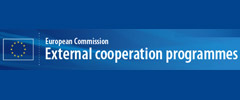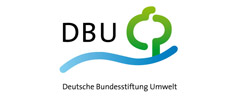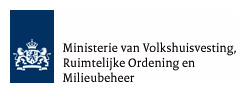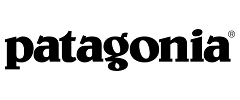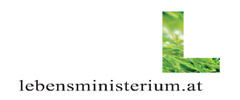Macedonia (FYROM):Tested small-scale water supplies are not safe
Schools and WECF tested small-scale water supplies in the Arachinova and Vratnica community on nitrate and bacterial contamination.
24.09.2014 |

Public water source in Arachinova and used as a source for drinking water
After 3 months of monitoring the results show the following:
- the quality of the water sources is not stable and all the tested water sources face a severe nitrate pollution;
- nitrate concentration can fluctuate from the limit of 50mg/l up to 250 mg/l. According to the drinking water directive of the EU, nitrate in drinking water should not exceed a concentration of 50mg/l;
- schools observed that shallow wells are more polluted compared to deeper wells.
- Nitrate contamination of the analysed sources depends on weather events: After heavy rains, in the period from June 9 to 11, the schools observed especially in the villages Vratnica and Mojance the highest degree of water pollution by nitrates.

Results of 3 months nitrate monitoring of 3 water sources in Vratnica. In Vratnica the schools targeted 11 wells in the private property and a 1 public well in the middle of the village, as well the tap water placed in the primary schools.

Results of 3 months nitrate monitoring of 4 water sources in Mojance.In Mojance registered 9 wells in the private property and a 2 public well in the middle of the village were identified by the school.
 Results of 3 months nitrate monitoring of 5 water sources in Orlanci.In Orlanci the school identified: registered 27 wells, 26 of the private property and a public well in the middle of the village.
Results of 3 months nitrate monitoring of 5 water sources in Orlanci.In Orlanci the school identified: registered 27 wells, 26 of the private property and a public well in the middle of the village.Although nitrate is a good indicator for water pollution caused by human activities, the most relevant indicators for testing the safety of drinking water are Total Coliform bacteria and Escherichia Coli (E. coli). Coliform bacteria and E. coli indicate water pollution by animal and/or human excreta. The drinking water directive of the European Union indicates for the Total Coliform bacteria a value of 0 per 100 ml drinking water.
In particular in rural areas of Macedonia the quality of wells and springs is rarely or not monitored at all and people are not aware on the safety of their drinking water.
The company Palintest donated to WECF one of its own manufactured portable water quality laboratories, the Wagtech Potakit, and enabled herewith WECF and partner to conduct the most relevant bacterial and chemical analyses in water samples.
WECF and local project partner JHR took 6 water samples for chemical and bacteria analyses in the community of Arachinovo:
- Arachinovo, primary school, piped water from own well
- Arachinovo centre, centralised water supply
- Arachinovo centre, public source
- Orlanci street water source, fed with spring water
- Orlanci private water supply, water is stored in a reservoir and fed with water from a centralised supply
- Orlanci private well (not protected, not used for drinking purposes)

Water is tested on the spot on nitrate contamination
Results
None of the analysed water samples exceeded the established limits for Nitrite, Ammonia, pH and conductivity, however sample 2 exceeded slightly the nitrate limit of 50mg/l and the nitrate concentration of sample nr 6 was with 250mg/l much too high.
None of the tested water samples fulfilled the norm for Total Coliform bacteria of 0/100 ml. The number of total Coliform bacteria was 10 – 36 /100 ml in water samples 1-5 and in sample 6 due to the high density of the Coliform colonies not countable.
Although, people (water users) mentioned water of the centralised water supply (sample 2) is disinfected by chlorination, no free neither bound chlorine was detected.

Petri-dishes with cultures of bacteria originating from water samples
Perspective
None of the six tested water sources of the community Arachinovo fulfilled the requirements of safe drinking water. In particular the presence of Total Coliform bacteria pose a threat to certain health risks. For taking further action, in particular more detailed bacteriological analyses on E. coli and sanitary inspection of the supply systems are required for the public water supply systems and the water source for the local school.
The longitudinal nitrate monitoring results of water sources in the community of Vratnica indicate a severe environmental pollution. In the frame of the WSSP the local schools and the community will identify possible sources of environmental pollution and measures to minimise health risks.
Taking the recently outbreak of Hepatitis A in the community of Vratnica in consideration, access to safe water and sanitation, and adequate hygienic behaviour for all, may be a top priority for the decision-makers in the region.
These activities were carried out in the frame of the project “Trinkwassersicherungskonzepte zur Umweltbildung an Schulen im ländlichen Raum Rumäniens und Mazedoniens”, supported by the Deutsche Bundesstiftung Umwelt (DBU)
Contact:Margriet Samwel or Natasa Dokovska
Related News
Together for sustainable sanitation and water security worldwide!
Stockholm, 26-31 Aug 2018: WECF participated in the World Water Week 2018 to further support the worldwide implementation of SDG 6
01.09.2018
National Round Table and Training on Drinking Water Issues and Priorities in Macedonia
Working Package 2 – Educational measures for responsible institutions and drafting of regulations, among the on-going project „Water and Sanitation Safety Planning in Romania, Albania, and FYR Macedonia”
27.07.2018
Training for Teachers on Water and Sanitation Safety Planning
Women in Development and WECF organise a 2-day workshop in Shkodra region, Albania
27.07.2018
Menstrual Hygiene Day 2018
Intersecting Menstrual Hygiene Management and the Sustainable Development Goals - an overview by WECF
28.05.2018
World Water Day 2018!
22.03.2018



















